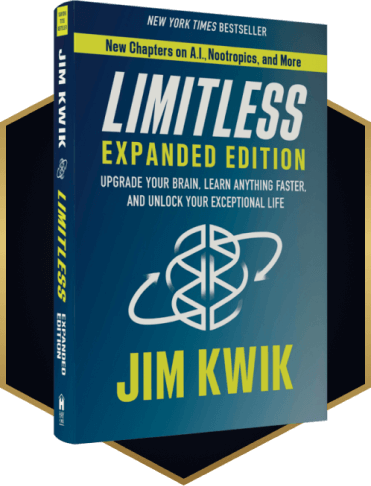We’ve talked a lot about the importance of changing your self-talk. You can read more about how to stop ANTs, here, and using the ABCs to change your thoughts, here. But what about what’s happening inside your brain when you have these thoughts? Specifically, how does changing your self-talk influence your neurology? We looked at five different ways you can change your brain through the power of self-talk. Let’s dive in.
Rewire Your Brain with Positive Affirmations
Research shows that positive affirmations can create lasting physical changes in the brain. In a study published in the Journal of Cognitive Enhancement, researchers found that repeated positive affirmations led to increased activity in key brain regions associated with self-processing and reward. Even more important, as the reward system strengthens individuals saw a direct decrease in sedentary behavior.
Essentially, this means that the more you engage in self-talk, you directly influence the wiring of the reward system. Whenever you activate the reward system, you stimulate the release of dopamine. Dopamine is the feel-good neurotransmitter and the more you produce, the more you reinforce the neural pathways associated with positive thoughts. This boosts your mood, which increases your energy, leading to a lifestyle that improves your overall cognitive function.
Boost Confidence with Powerful Language
You’ve heard me say, if your brain is a computer, your self-talk is the program you run. That’s because your brain is highly sensitive to the language you use. But you can use this to your advantage. By incorporating powerful and confident language into your self-talk, you can actually influence and change the way your brain perceives challenges.
A study in the Journal of Personality and Social Psychology showed that individuals who used strong, positive language in their self-talk were more likely to approach tasks with confidence and resilience. This is largely due to how language impacts the amygdala, the area of the brain that plays a crucial role in processing emotions. By using assertive and empowering language, you calm the negative emotional responses in the brain, leading to courage and self-assurance in times of stress.
Enhance Learning through Visualization
One way you can reinforce positive self-talk is through visualization. Multiple studies in the field of neuroscience show how mental imagery activates the same neural pathways as actual experiences. When you engage in positive self-talk by using images, you stimulate the areas of the brain that create joy, happiness, and delight.
You can use this to your advantage by visualizing success, achieving your goals, or feeling fulfilled and satisfied. When you pair the images with positive self-talk, you’re priming your brain for optimal performance. What you imagine, your brain recreates. You start seeing success, happiness, and confidence wherever you look, reinforcing your self-talk with evidence in the real world. It’s a potent strategy to help boost your performance in every area of life.
Manage Stress with Calming Words
Chronic stress wreaks havoc on the brain. It affects memory, focus, and overall cognitive function, along with your physical health and mental well-being. And one way you can combat stress is through your self-talk. A recent study set out to find how self-talk influences the levels of stress by measuring the stress hormone cortisol. They found that positive self-talk not only decreases stress and anxiety levels, but negative self-talk spikes them.
You can see the power of this in another study. When researchers had participants who experience test anxiety simply tell themselves that they were excited before taking a test scored 8% higher and felt more confident of their results. The reason? Calming and positive self-talk activates the prefrontal cortex, which dampens the emotional response of the amygdala stress signals. Your body can experience the same physiological feelings of being nervous, but your brain functions entirely different—just based on your self-talk.
Foster Resilience with Growth Mindset Language
One of the benefits of improving your self-talk is developing a growth mindset. Carol Dweck defines a growth mindset as one where you believe that you can develop your abilities and skills through dedication and hard work. Those are the exact beliefs you begin to build when you focus on positive self-talk. And as one study on college student mental health shows, individuals who have a growth mindset exhibit increased resilience and motivation.
A growth mindset also has numerous brain benefits. Studies show that individuals with a growth mindset are more open to corrective feedback, have heightened awareness of potential errors, and showed increased cognitive control. These traits make you more likely to recover from mistakes faster while avoid making as many errors as others. And because you’re more open to feedback, you’re likely to grow at a faster pace than individuals with a scarcity mindset. Finally, because success naturally activates the reward system, you develop a positive relationship with learning and growth that lasts a lifetime.
Conclusion
It’s easy to see that your self-talk is more than the program running your brain. It can be your superpower that can shape the structure of your brain and how you think. By incorporating positive affirmations, powerful language, visualization, calming words, and a growth mindset into your inner self-talk, you rewire your brain for success, happiness, and a limitless mind.
To learn more about how to master your inner critic, watch this video:







